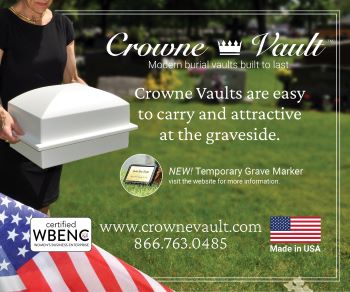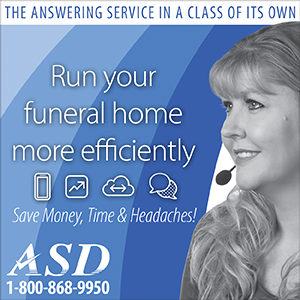Lack of Work-Life Balance may cause headaches at the funeral home

Last week we wrote an article that you can read here that highlighted the record number of students currenty enrolled in mortuary schools across the country. That article certainly makes it look like we will have a number of graduates to replace those retiring funeral directors as the years go by.
However, when you look at the number of students who drop out before graduating and you also look at the high number of funeral director/mortician employees who leave the profession after a short period of time working in it, the ability to replace retiring and leaving funeral directors looks somewhat bleak in the forseeable future.
We all know that being a funeral director does give a certain amount of satisfaction to a life, but that satisfaction may not be enough when weighed against what employees want from their lives. This article I came across entitled “Five things Millennials in the work force look For” does not creat a symbionic relationship with funeral home work. . . especially large, rigid, structure funeral home work like some of the larger companies in the death care space enforce with employees.
In a nutshell, Millennials who, according to Encyclopedia Britannica are roughly between the ages of 27 and 42 at this time, do seem according to the linked article, to want to work as a team player with a group and also want to make a difference in their work as well as use their individual abilities to create work solutions every day. Those attributes seem to tie in well with what a Millennial funeral director would be doing in a large scale funeral home environment.
However, some of the other attributes, and those we have been hearing about in the news so often with Millenials and the work environment come in contrast to working in a large scale funeral home. Some of those employment traits of this group is that they want a “Work-Life” balance, want the ability to tele-commute or work from home, and want “”flexibility” in scheduling. And, according to the article linked above, they “. . favor practical, sensible action to achieve results over ideology. . ” That preference can be a real “hang-up” to those employees who are asked to work in a corporate structure of “doing things the corporate way”.
I was a front-line funeral director/owner/manager for what became a 325 call funeral home my entire working life. Even with 6 funeral directors it was difficult to create a “work-life” balance like some of my other professional friends had. I, and my team members had weekend work, evening work, night-calls, and the simple fact that when working with a family from death call to cemetery interment you were never off-duty. . . or so it seemed. Yet, myself and my employees carved out a “pretty-good” work-life balance.
I don’t know why it is, but it seems harder for today’s funeral directors. But, I don’t think it is their fault. Family dynamics of mourners and death care choices have played a significant role. I think they are both more complicated and more time consuming than they were ten years ago.
Another part of the equation is online direct cremation where little help from a funeral director is needed. However, online direct cremation plays a role in this dilemma too. They create less work and should then help with a better “work-life” balance for employees, but they also bring in less revenue per case which may cause a financial issue in the hiring of more funeral directors at a specific location. So, in my opinion, when online direct cremation is looked at wholistically, it theoritically could cause more employment problems than it solves.
Again, from my perspective, I’m seeing the funeral home employment issue continuing to trend to a problem state. It used to be, and I heard this from many 2nd career morticians, that funeral home employment was a pretty good hedge against ever being unemployed. In essence, many funeral directors put up with the less than desired “work-life” balance because of the job security offered by funeral homes.
However, jobs are pretty plentiful today. In the month of May alone, the United States created 339,000 jobs when Wall Street expected only about 195,000 jobs to be created. It was the 14th straight month of higher than expected job creation in the United States. So, now the idea of job security is no longer keeping morticians at the funeral home. . . . they see the same type of income in jobs with no nights and no weekends. . . . .a “work-life” balance plus for them to leave the profession.
Finally, I think even though the mortuary colleges have turned out many great female funeral directors, the percentage of “Prime-Age” employment is also slipping in America. Think of that as some two-wage earner families now becoming one wage earner families with one spouse staying home to care for children rather than pay the high cost of child care. It’s my guess that many of these great female funeral directors may now find themselves in that role which also, in a world where the colleges are turning out 75% female funeral directors, may hurt funeral services more than many other professions. . . .simply because of the recent high percentage employment role of females in our business.
Suffice it to say that I think it is “crunch-time” in the mortuary employment arena. And, even with the advent of many recruiting programs, I don’t think it is going to get much better. Being a funeral director can be very rewarding work. . . . but it can also be very time consuming and demanding.
If it is going to get better maybe funeral homes are going to have to put more financial resources into the hiring of additional funeral directors. . . yes, that will hurt the bottom line, but if it is not done, service will suffer and the bottom line will be hurt by the inability to serve clientele in the manner in which they expect.
I also have a suggestion for those bosses or regional managers who are very rigid in the way their funeral directors have to perform. Maybe ease up a bit and you will have even better results. I liked being in control, but through experience I also found that giving some of that control to my team members not only resulted in less work for me, but created better profits.
I learned over time to give my team members the equipment they needed to get the job done, the boundaries that they could use, and then told myself to get out of the way so they could do their job. I was amazed at how those funeral directors used their judgements and thoughts to create a more profitable funeral home for me and more meaningful experience for our clientele at the same time.
There are no easy solutions to this issue. . . it is part of the death care evolution of choices and expections, part of the times we live in, and part of the expectiations of both the management of firms and the team members that they employ to do the hands on work of being a funeral director. The more we understand of each other and our expectations, the better we can get to the proper solutions.
More news from the world of Death Care:
- Mortician with 500,000 TikTok followers removing the stigma around death. Insider
- Our cemeteries face a housing crisis too. 4 changes can make burial sustainable. The Conversation (Australia)
- Group raising funds to complete memorial at Pine Grove Cemetery. Community Advocate (Canada)
- A Bristol funeral director is hoping to inspire other women. BBC News (Great Britain)
Enter your e-mail below to join the 3,265 others who receive Funeral Director Daily articles daily:





















Very well written Sir! I am working on an article about the role of today’s Funeral Director. When finished it may offer some insights to the leaders of this great profession. These insights are radical, but practical.